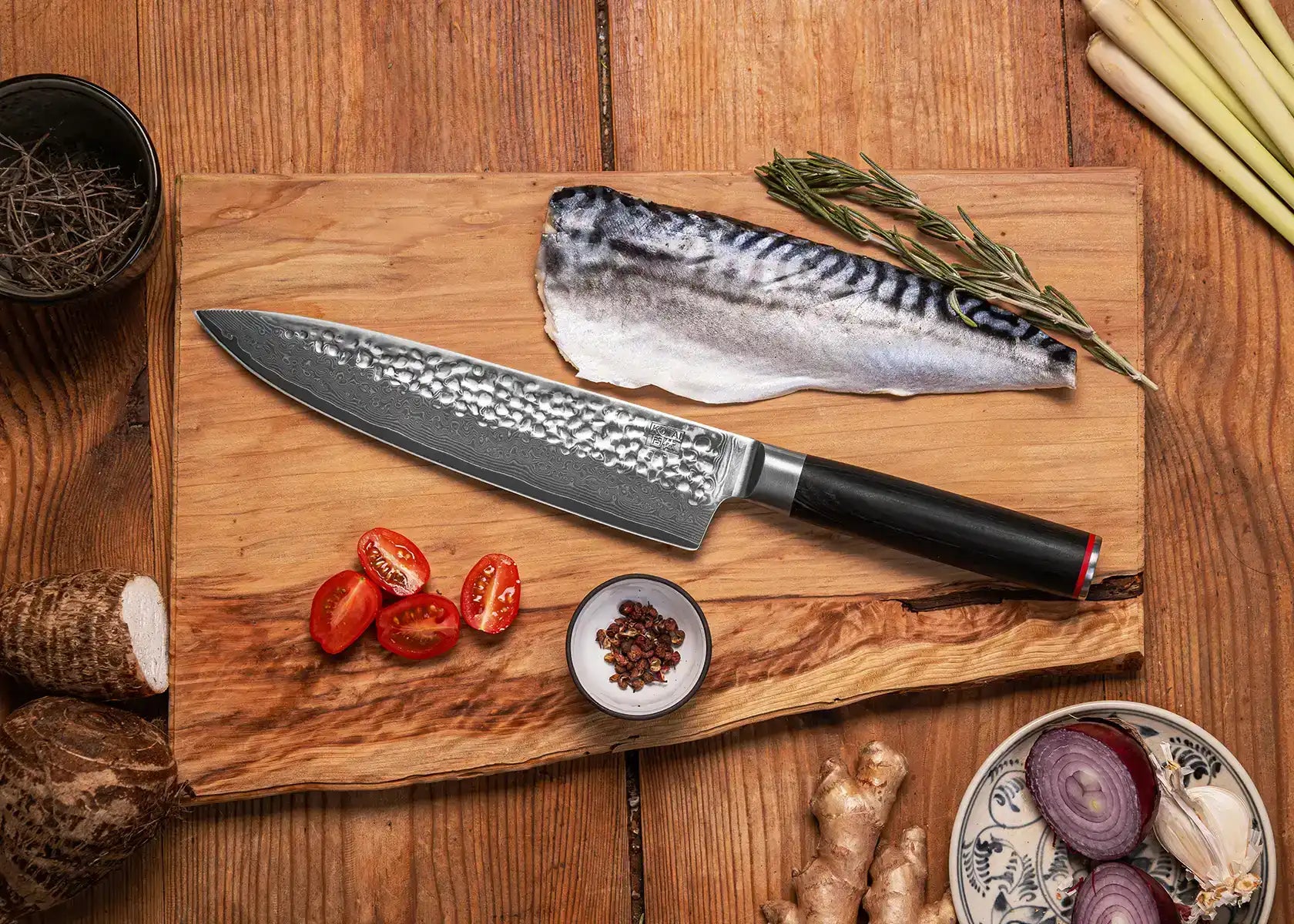The allure of Damascus knives resides not only in their stunning appearance but also in their unparalleled performance. Yet, for a chef or kitchen professional, understanding what enhances this performance is crucial. The handle plays a vital role, and choosing the right material for these legendary blades can elevate your culinary experience.
In the culinary world, where precision and comfort blend to create art, selecting the perfect premium handle materials for Damascus knives is paramount. How do you discern what suits your needs? Let's delve into this critical aspect of kitchen tools and uncover the best materials available.

Why Handle Materials Matter
The handle of a knife is more than just a grip; it forms a connection between the chef and the culinary masterpiece they create. When it comes to Damascus knives, their high-quality blade requires a handle that complements the blades strength, aesthetics, and functionality.
Whether it's ergonomic comfort or resistance to environmental changes, the handle material can significantly impact the knifes usability and the chef's efficiency. Kitchens are bustling environments; thus, selecting a handle that offers a secure grip even when wet is essential.
Top Premium Handle Materials for Damascus Knives
1. Exotic Hardwoods
Exotic hardwoods are a favorite among knife enthusiasts for their aesthetic appeal and tactile pleasure. Woods such as Cocobolo, Ebony, and Rosewood offer natural beauty and durability. These dense woods provide a luxurious feel and can withstand the rigors of professional kitchens.
2. Micarta
Micarta is a composite of linen, canvas, or paper with resin, creating a durable and water-resistant material. It's known for its non-slip surface and ability to withstand extreme conditions without compromising on comfort or grip. Micarta is particularly favored for its balance between tradition and modern toughness.
Balancing Function and Form
While premium materials are critical, attention must also be given to the knifes design and balance. According to a detailed study on the history of Damascus steel, the alignment of a knifes handle with its blade has been an ongoing evolution, aiming for perfection.
In professional kitchens, where chefs spend long hours with knives, balance ensures that fatigue is minimized, allowing for effortless precision in cutting and slicing. A perfect handle does not only look good; it supports rigorous daily use.
3. G10 Fiberglass
G10 is an incredibly durable glass-based epoxy resin laminate. It has been praised for its strength, electrical insulation, and moisture resistance. For chefs who prioritize functionality above all, G10 offers an unparalleled sense of reliability in challenging kitchen conditions.
Choosing Your Ideal Damascus Knife
Knowing which premium handle materials align with your culinary tasks can guide you to choose the right Damascus knife. Offering a combination of comfort, durability, and aesthetic appeal, these materials ensure that your knife not only stands out in form but also in function.
Explore options like the 8-inch Damascus Chef Knife or read about fine slicing techniques to make an informed decision.

FAQs: Premium Handle Materials for Damascus Knives
1. What makes a premium handle?
Premium handles are typically crafted from materials that offer durability, aesthetics, and comfort. They should enhance the knife's balance and be resilient to kitchen conditions.
2. Are wood handles better than synthetic?
Wood handles provide a natural feel and unique aesthetics, while synthetic materials like Micarta and G10 offer superior durability and moisture resistance. The choice depends on personal preference and intended use.
3. How do I maintain my Damascus knife handle?
Regular cleaning with mild soap and water, avoiding prolonged moisture exposure, and applying mineral oil to wooden handles can preserve your knifes integrity and appearance.
This article contains affiliate links. We may earn a commission at no extra cost to you.


























